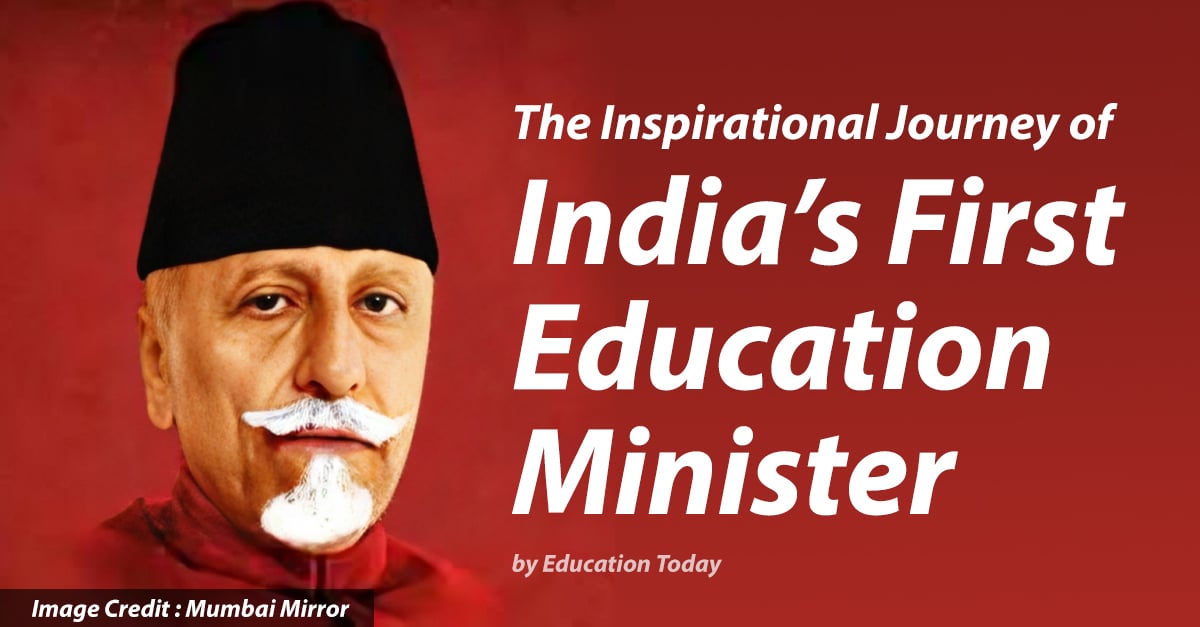In the era when education was the beacon of hope for a nation awakening to independence, one man stood at the forefront, shaping the future of millions. India's first education minister, Maulana Abul Kalam Azad, embarked on a journey that would redefine the essence of learning. From revolutionizing syllabuses to establishing national colleges, his legacy continues to inspire generations even today. Let’s go deep into the life, achievements, and legacy of the man who pioneered the Indian Education System.
Maulana Abul Kalam Azad's Childhood and Education
Maulana Abul Kalam Azad was born on November 11, 1888, in Mecca to an Indian family hailing from Calcutta. Despite never receiving a formal education, he was home-schooled with traditional Islamic education from his fathers and other scholars. From a young age Azad, found his love for reading books and learning. He spoke multiple languages like Bengali, Hindi, Urdu, Persian, and Arabic fluently.
Maulana Azad's Fight for Unity and Freedom
Maulana Azad was a staunch believer of Hindu-Muslim unity. He inspired thousands with his journalistic skills through an Urdu Weekly named” Al-Hilal” when he was just a teenager. He grew to become a powerful voice against British rule in India. British officials had to ban his publication to sabotage his attempts to inspire people for the Independence of the country.
Following the Independence of the nation, Azad went on to become India’s first education Minister in the Interim Government presided over by Jawaharlal Nehru. During his tenure as India’s first education Minister, he introduced modern science syllabus in schools and colleges. He encouraged them to conduct exams so they could exhibit critical thinking and innovation amongst students. He established a National Education Policy that prioritized inclusion and access to every Indian child regardless of his/ her background. He introduced several initiatives to emphasize the importance of primary education to all children. He tried his best to make education accessible to everyone without any discrimination.
It was during his period that national Science Institutions were established in prominent cities across India. Azad always emphasized the importance of holistic development and practical learning. He played a key role in the establishments of the Indian Institutes of Technology (IITs) and the University Grant Commission (UGC). Some of his iconic initiatives as India’s first education minister are encouraging adult literacy, free and compulsory education to all up to the age of 14, diversification of secondary education and vocational training, and promoting girl’s education.
Maulana Azad's Influence on His Legacy
Apart from being India’s first educational minister, he was also a scholar, poet, and champion of Hindu - Muslim Unity. He was posthumously awarded Bharat Ratna, India’s highest civilian honor in 1992 for his immense contribution to the field of Education. Every year on his birth anniversary his legacy is celebrated as National Education Day.
In the realm of education, India’s first education Minister Maulana Abul Kalam Azad left behind an incredible legacy. His advocacy for quality education led to the establishment of several prestigious institutions in the country. His unwavering commitment to educational reforms and policies has inspired generations of learners and educators. Today he has become a guiding light for those who are determined in the pursuit of knowledge.


Comments